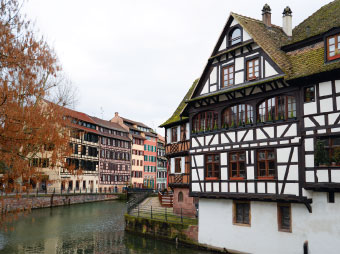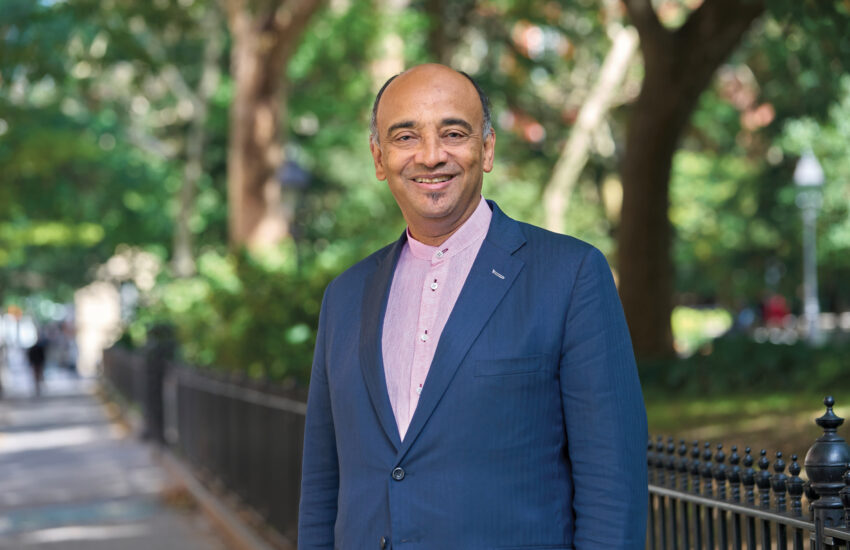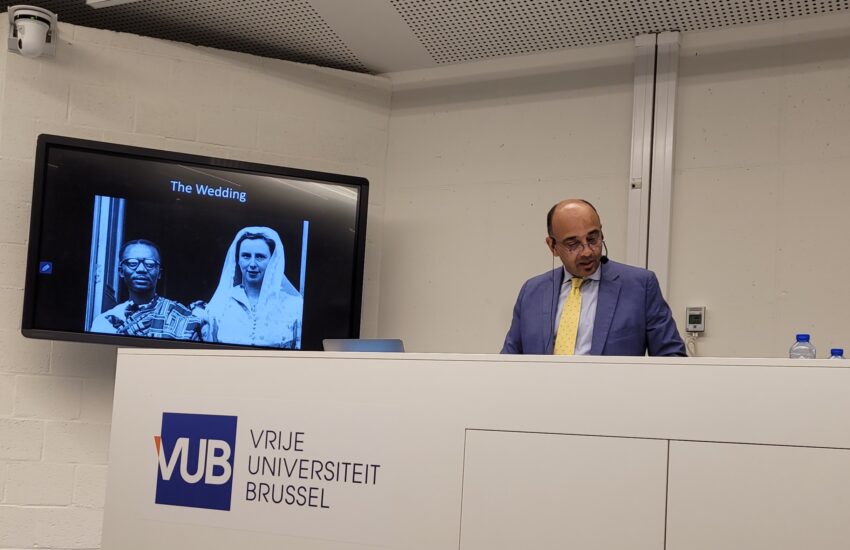An Afropean Relocation – Cool Receptions, Linguistic Plateau and Relational Epiphanies
The last Monday of October marked my first year anniversary in Strasbourg. As the date approached, I felt a vague dread. There’s the usual anxiety about getting older; how time seems to speed up with age. There’s also the on-going neurosis about my linguistic progress. My main motivation for moving to France was to master the language. Anything less defeats the purpose.
On the morning of my one-year anniversary in Alsace, I spotted a photocopy of the building rules in my post box. The section about noise had been passive-aggressively highlighted in orange.
The sound insulation in the building is top notch. Apart from a couple of times when I’ve had my radio on a bit loud after 10pm, I try to be a model neighbour. I wondered about the identity of this resident who had neither the courage nor the courtesy to address me directly.
Later that day, thanks to a mix-up at the salon (owing in no small part to my therapist being economical with the truth) I paid significantly more for my treatment. First World problems, I suppose.
These two seemingly unrelated incidents sum up much of my Strasbourg experience thus far and my ensuing ambiguity about it; cold reception and linguistic frustration.
There’s a certain element of naïve optimism needed to make a major life change such as relocating to another country. I must have had more of it than I realised when I arrived. I didn’t factor in how long it would take to find accommodation, for example. Or that I wouldn’t speak French like a native overnight.
Years ago, former Francophone acquaintances reassured me that all I needed were a few months in France.
You’ll be fluent in no time!
Although at that period in life I was more confident, my language level was inferior to what it was on moving to Strasbourg.
A year on, these upbeat predictions are far from my reality. I fear my diligence and zeal has been mistaken for innate linguistic ability. Learning a language is necessarily a humbling experience. Being the drama queen that I am, this has contributed to a number of existential crises. I worry that I am perceived as dim. My confidence is at an all-time low. I doubt myself constantly. I oscillate between questioning my intelligence, comparing my apparently glacial progress to all the talented polyglots I know and pep talks about not being defined by my achievements (or lack thereof) and keeping perspective. There are far worse things in life than missed objectives.
Living in France has obviously had an impact on my relationship with English. Not having grown up with any of the indigenous tongues of my otherwise rich West African heritage, I developed a taste for languages at a very young age. I hated my cultural disconnect. I hated the idea of being monolingual. I perceived English as an imposed language; further evidence of my cultural evisceration. I would be a colonialist’s wet dream.
The irony wasn’t lost on me that I gravitated towards other languages with a dark imperialist past. But it was better than nothing.
Now I’m based in France, it feels like cheating when I speak English. Both French and English are the official languages of the organisation where I work. Mine is a predominantly Francophone department but I am required to still use a lot of English. It’s an impediment to my linguistic progress. I can’t however deny there are times when it is practical to make the switch. There might be a concept I can’t adequately express in French; either from linguistic deficiency or because it is somewhat lost in translation. English therefore becomes a reluctant refuge.
Pardon. Le francais n’est pas ma langue maternelle has become a refrain, as much as I am uncomfortable with the idea of English being my ‘mother tongue’. I say it to manage the listener’s expectations.
Despite my efforts to speak with an authentic French accent, there are subtleties that I can’t quite capture. My supposedly charming (* groan *) Anglophone accent routinely gives me away. Although I welcome the intellectual workout of trying to convey my thoughts to monolingual French friends, it can be exhausting. I have the impression French will only ever be a borrowed language.
To my surprise – and mild embarrassment – I also feel culturally more British. I’ve never identified as English (ibid colonial disconnect). When asked where I’m from (as happens often in France), I give the chapter-and-verse response.
Well, I was born in London but my origins are…
So you’re English then?
Not really. But, yes I’m Anglophone.
Having a British passport has always been more of an administrative reality than a question of culture.
Yet, I’m reminded of my anglicised mores for instance, each time a stranger whose name I don’t know closes in for the dreaded double-cheek bises.
This kissing business is not my thing. I say, half-apologetic, half-defensive, I’m a Brit.
A part of me, again reluctantly, delights in that other-ness. The shifting, constructionist nature of the Afropean identity becomes ever more apparent.
As an expat, cultural differences are more pronounced. Certain stereotypes appear to have a grain of truth.
I have found Frenchmen to be more direct in their approach and less conservative in their tastes than their English counterparts. They get straight down to brass tacks. Small talk goes from introductions to dinner invitations in a flash. The die-hard romantic tropes aren’t wide off the mark either. What should be simple responses to text messages take on ego-boosting, poetic proportions.
African/Caribbean women, at least in this corner of the Hexagon, appear to be more widely appreciated by various ethnicities than what I have generally observed in the UK. The Jolie Fille epithet is liberally used, even by colleagues. But there’s often a fickleness to much of this attention. Compliments and overtures flow freely with little consequence. For some potential suitors, already having a wife or girlfriend is a mere technicality to be side-stepped. They often scarper as soon as I make my platonic intentions clear. Romance or bust. I observe all this carry-on with an anthropological detachment; both bemused and disgusted.
The Alsace region is an anomaly in France; caught between Germanic influences and sanguine Southern-European proclivities. One will subsume the other depending on the context. The regional dialect Alsatian, for example, is much closer to some Low German varieties than Latinate French. At musical events, I note with disappointment that the crowd is usually subdued. My Strasbourgeois acquaintances blame a reticent Teutonic trait. Even the archetypal features are distinctly Nordic.
On the other hand, I’ve observed a Mediterranean frankness when it comes to expressing one’s thoughts. Anglo-Saxon filters (or less generously speaking, false diplomacy) aren’t regularly applied. This does have its advantages. However, I’ve routinely heard comments that across the Channel would be the preserve of the culturally insensitive. I’ve become more aware of what our transatlantic cousins refer to as micro-aggressions.
I’ve had to get used to casual references to Les Blacks, which has replaced ‘Les Noirs’ in common parlance. It sounds even harsher in the Francophone context.
I recall being on a ramble through my local forest with an elderly neighbour on an unseasonably warm spring day.
Quite like Africa, no?
She later went on to lament the amount of foreign languages she hears spoken on public transport.
Another occasion, whilst attending a panel discussion on the feminist struggle for the right to vote, an enthusiastic bespectacled woman approached me in the lobby.
Hello Cecile!
She was referring to the sole brown face on the panel, Cécile Kyenge. Congolese medical doctor and MEP Kyenge became the first minister of African descent in her adopted Italy.
There are other African women in Strasbourg, you know. I retort.
I was surprisingly irate. If the comparison were based on Kyenge’s considerable achievements rather than aesthetics, that would be a different matter. Aside from a similarity in complexion, Kyenge and I look nothing alike. She has at least 15 years on me. She wears a cropped black afro. At the time I am sporting long-ish kinky twists with burgundy highlights. Nothing would link us besides our shared ethnicity.
In the work context I feel doubly foreign; neither of European descent, nor Francophone. I work for an international organisation that leaves something to be desired regarding non-European diversity. Notwithstanding a handful of cleaners, security guards or canteen employees, I can go weeks without seeing anyone of African or Caribbean extraction.
It’s not that being the only brown girl in the ring is unfamiliar to me in a professional context. I am just more conscious of it than I would be in the UK.
During an impromptu meeting with two female managers, they make allusions to my supposedly fiery personality; how I don’t fit in with the team.
We’ve never had anyone quite like that in this department.
(I have heard and seen to the contrary).
Up to that point, I had tried to self-efface as much as possible. My subtle attempts to avoid perpetuating any “angry, black woman” stereotypes have apparently been for nought. I don’t know if I’m being paranoid or the anxiety is now justified. And so I play along, just enough not to be singled out. Maya Angelou’s The Mask sometimes comes to mind.
There are of course the innocuous comments, made more from curiosity than malice. The other day a well-intentioned Cypriot colleague asks me if I know where to obtain Shea butter.
Your skin must require special care…
She proceeds to tell me about the shops in what I have dubbed Le Quartier Noir, a rather grim area with which I am already familiar.
Out in the real world, I am more wary of the authorities; be they ticket inspectors or Kalashnikov-carrying pubescent soldiers strolling down Langstross Grande Rue. During one of my mother’s visits, we came across particularly unforgiving inspectors on the tram. We were fined 40 euros on the spot for not validating my mum’s ticket before boarding; a problem that is otherwise easily rectified. Mum later suggested we should have refused to pay and alighted at the next station. I am not so sure. I don’t underestimate the possibility of being apprehended by brute force, especially in light of recent events, race-related or otherwise.
There are other aspects of the Alsatian mindset I find challenging.
I didn’t expect an international city – a student town at that – to be as socially closed-off. Don’t get me wrong. The Alsace region is beautiful, with its quaint Gothic-fairy tale architecture overlooked by the Vosges mountains. Strasbourg has the topographical appeal of a less congested Amsterdam. It’s clean. Transport and accommodation are considerably cheaper than London. The work-life balance is impressive. The pace isn’t manic. Perfect strangers exchange greetings without raising an eyebrow. It is relatively diverse as a whole. I attend a church that boasts dozens of nationalities, led by a multi-lingual pastor of mixed German and African-American heritage. There’s an abundance of cultural activities for most of the year.

But interactions are atomised in a way I didn’t expect. There’s a general froideur; the dispensing of common courtesies and even an abruptness I’d hoped I’d left behind in London.
People make all sorts of vague plans to meet-up that never materialise. It doesn’t come from a place of bad intent. It’s just how it is. A Giant Clique. Everything closes in on itself.
I barely know or see my neighbours. I catch glimpses of people in my building at random intervals. In most cases, I couldn’t distinguish them from an opportunistic burglar. A few days ago, a colleague introduced herself as the neighbour who lives opposite me. We’ve crossed paths several times, she graciously explained. I was understandably mortified, apologising profusely.
A friend from the UK paid a visit over the summer for a week. Within a day of her arrival she remarked on how conservative she thought Strasbourg was. I was astonished that she’d already picked up on a common observation. Alsace is conservative in the original sense; a desire to preserve a certain way of life that can be inadvertently unwelcoming. It is not as open to adaptation as the cities I’m used to.
My more internationally-minded Strasbourg acquaintances can relate. It’s easier to establish links in a megapolis like London or Paris, one of them explains. Life is transient. There are lot of other ‘outsiders’ in the same position; no roots in the city and looking to make friends. It’s not dissimilar to the undergrad experience. By contrast in Alsace, most of the residents are from the region. They have long-established networks that they are not in a hurry to expand.
That hasn’t stopped me from making the effort. A number of things have come to my attention on my outings. The crowd are usually a lot younger or older. Whereas in London it is perfectly normal for fellow 30-somethings to not yet be in any long-term domestic set-up, that’s not the case here. The Strasbourgeois tend to be preoccupied with their own families and close circle of friends.
Whatever the age, people consistently hang around in couples or groups. They seem terminally-allergic to being single, particularly the women. More than once I’ve made arrangements to meet with a female acquaintance only for the boyfriend to be brought along at the last minute, to my annoyance. The charitable part of me can understand this apparent co-dependency culture. It’s not a city that is exactly kind to those flying solo.
There have been times when the isolation is like a stalking presence. I’ve experienced unfamiliar emotional lows out here. It intensified during the summer. It is the regional custom to vanish during the holidays. A few of us are left behind, rattling around an empty office building or wandering through deserted streets.
With time, I’ve learned to adjust my expectations.
And contrary to what the above might suggest, I don’t regret the move.
I enjoy a standard of living that wouldn’t be feasible in the current British economic climate. I have opportunities and freedom to explore that should not be taken for granted. The rest of France and the Continent is logistically closer. I have healthy distractions in the form of my extra-curricular activities. It also makes for a pleasant change to hear a close approximation of how my name should be pronounced, instead of it being butchered by Anglophones.
I believe the most important lesson living in Strasbourg has taught me so far is how to be present. It’s something I’ve often grappled with.
Fleeting interactions have helped me see things from a different angle.
Left to my instincts, I seek to hold onto potentially good relationships. Everything in life needs to serve a purpose. If a good rapport doesn’t blossom into a fully-fledged friendship or comes to a premature end, I would have previously considered it pointless.
I’m learning to hold that interpretation a lot more loosely. Sometimes the ephemeral interaction is the point. It’s served a purpose, in that moment. If a potential acquaintance turns out to be a flake, it’s a shame but not the end of the world. The connection is no less valid. They were there for me at a specific point in time when I needed it.
I don’t feel as resentful about lost contacts. I am not as aggravated as I have been about the insularity of the City. I am free to enjoy the experience for what it is. Anything more is a bonus.
This piece has been adapted from previous blogs on La Vie Strasbourgeoise: Adventures in Alsace.


